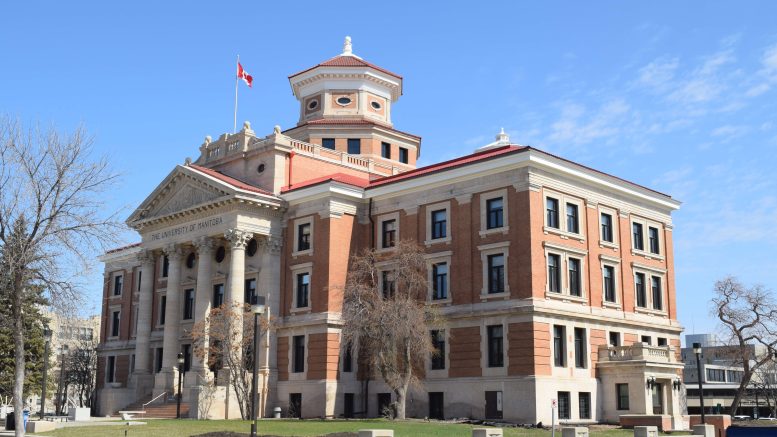The U of M is asking for input from the university community to draft freedom of expression guidelines. This is in line with moves that many universities across Canada are making to strengthen their claims to free speech and the right to assembly through laws and prescriptive university policy.
Framework pillars have been established with the support of the university’s board of governors and senate to assist with formalization of the guidelines.
Michael Benarroch, U of M president and vice-chancellor, said that “this new statement is intended to guide us in protecting difficult debate in a way that advances knowledge and balances the rights of the broader community.” Benarroch stated that “our mission is to advance learning by creating, sharing, preserving, and applying knowledge in partnership.”
As the university affirms, it is committed to protecting the right to express diverse opinions and perspectives. “This includes the right to express ideas, information, and opinions freely, and in practice, it means the university will not shield individuals from ideas and opinions they find unwelcome, disagreeable, or even deeply offensive,” stated Benarroch. As outlined in the draft guidelines, the university may restrict expression that violates Canadian or Manitoba law, university policies and those that contribute to a genuine threat, harassment, defamation or violate confidentiality interests.
The university recognizes in a statement the difference of academic freedom from freedom of expression, the former being an existing right as stipulated in the collective agreement between the university and the University of Manitoba Faculty Association.
The university’s academic freedom and responsibilities policy states that “persons engaged in teaching, research and dissemination of knowledge are, therefore, entitled to freedom in carrying out teaching and in discussing their subjects, and freedom from institutional censorship.” The document adds that “academic freedom carries with it the responsibility to use that freedom in a manner consisted with the scholarly obligation to base research, teaching and the dissemination of knowledge in a search for truth.”
On the other hand, following consultation with the university’s board of governors and senate, freedom of expression has been established as a key pillar to “guide the development of a formal statement.” As it stands, “freedom of expression at UM includes the right to express ideas, information, and opinions freely through any medium, respecting the diversity of methods in which these ideas can be conveyed and debated.”
The statement pillars emphasize how the university intends to navigate difficult conversations. “It is not the role of a university to shield individuals from ideas and opinions they find unwelcome, disagreeable, or even deeply offensive,” reads one of the freedom of expression statement pillars. “Learning requires exposure to a variety of different perspectives, and these perspectives will often and quite naturally conflict,” reads another statement pillar. The university is “committed to free and open inquiry in all matters.”
A statement pillar also addresses the topic of institutional neutrality. The university recognizes that institutional statements regarding local or global issues may provide a false feeling of consensus amongst the community and “can have the unintended effect of chilling the expression of contrary views or signaling that opposing views are unwelcome.” To this end, the university expresses that it is “committed to maintaining institutional neutrality as part of its commitment to freedom of expression.”
Another statement pillar pertaining to education assures that “through workshops, seminars, and resources, UM aims to foster a community that understands and values the balance between free expression and mutual respect.”
The university welcomes community feedback on the drafted freedom of expression statement pillars through their website by Sept. 20.
“Once we have everyone’s input, we will incorporate that into a draft and share that for further consultation,” Benarroch said in a statement.
Feedback on the university’s freedom of expression statement pillars can be submitted online by Friday, Sept. 20, 2024.



